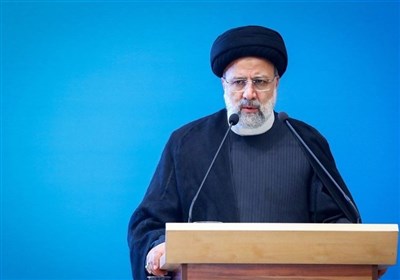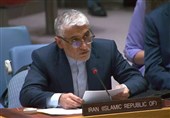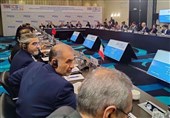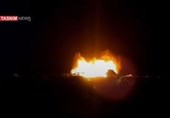Bolton Firing Shows Trump’s Foreign Policy Not Consistent: US Analyst
TEHRAN (Tasnim) – An American political commentator highlighted US President Donald Trump’s inconsistent approach toward foreign affairs, saying the president fired John Bolton to probably develop a “less aggressive stance” than the former US national security adviser.
“Certainly, there is a lack of consistency in the Trump administration when it comes to a variety of matters, including foreign policy,” Keith Preston, the chief editor and director of attackthesystem.com, told Tasnim in an interview.
He added, “Trump likely fired Bolton because the President is inclined toward a less aggressive stance than what Bolton’s supporters would prefer.”
Keith Preston was born in Lynchburg, Virginia, United States. He received degrees in Religious Studies, History, and Sociology from Virginia Commonwealth University. He is the founder and director of American Revolutionary Vanguard and the chief editor of AttacktheSystem.Com. He has also been a contributor to LewRockwell.Com, Antiwar.Com, Anti-State.Com, Taki’s Magazine, Radix Journal, and AlternativeRight.Com . He is the author of six books, and was awarded the 2008 Chris R. Tame Memorial Prize by the United Kingdom’s Libertarian Alliance. Keith has been a featured speaker at conferences of the National Policy Institute, H. L. Mencken Club, and Anarchapulco. He has been interviewed on numerous radio programs and internet broadcasts, and appeared as a guest analyst on Russia Today, Press TV and the BBC.
The following is the full text of the interview.
Tasnim: US President Donald Trump on Tuesday announced the firing of national security adviser John Bolton. What was the main reason behind this?
Preston: John Bolton has long been associated with a coterie of super-hawks that dominate the Republican Party’s foreign policy establishment. Bolton represents the objectives of two main groups. One of these is the neoconservatives, who are radical Zionists that are aligned with Israel’s Likud Party, and want American foreign policy in the Middle East to align with Likud objectives. The other group is the aggressive imperialists that have been influential in right-wing American politics since the 1960s, and who are primarily concerned about empire-building, securing control over various material resources in different countries for US business corporations, and ensuring that the profit margins of the various military-related industries in the US remain high. Both of these groups take a very aggressive position when it comes to virtually all matters involving international relations, regardless of what other nations are involved. Bolton was essentially the spokesman for these interests in the Trump administration. Trump likely fired Bolton because the President is inclined toward a less aggressive stance than what Bolton’s supporters would prefer. Trump has expressed a greater reticence about military intervention in other nations, and a greater willingness to utilize diplomacy and other means of advancing foreign policy objectives. President Trump was elected on a campaign platform that promised a more restrained foreign policy, and he is likely concerned about his reelection bid next year. He is also aware of how the legacies of Presidents George W. Bush and Barack Obama have been tarnished by their failures in Afghanistan, Iraq, Libya, and Syria, and the President does not want his own legacy to be damaged in the same way.
Tasnim: Bolton denied being fired and insisted that he had resigned. Democratic Senator Jack Reed said that "Bolton was wrong for this job," but added that removing him "isn't going to fix the failures plaguing this administration's dysfunctional foreign policy." He further described the White House as being "in constant turmoil." It seems that the Trump administration is in chaos. What do you think?
Preston: Certainly, there is a lack of consistency in the Trump administration when it comes to a variety of matters, including foreign policy. However, it is also possible to identify certain patterns. On one hand, the President has been very magnanimous toward foreign policy interests that he feels are consistent with his own interests. For example, he has been the most pro-Israel President that the US has ever had, even more so than President George W. Bush, and Trump has signed off on everything that Prime Minister Netanyahu has done that does not conflict with Trump’s personal political interests, such as annexing the Golan Heights or moving the capital to Jerusalem. Trump has arguably been the most pro-Saudi President the US has ever had as well, in spite of the Saudi regime’s horrible human rights record, support for Takfiri terrorism, and genocidal war in Yemen. Trump has also provided the Pentagon with record-high budgets. But Trump seems to draw the line at starting new wars, probably because as a businessman he understands cost-benefit analyses in a way that career bureaucrats like Bolton do not.
Tasnim: US Treasury Secretary Steven Munchin underlined that Trump and top aides remain "completely-aligned" on Washington's sanctions against Iran. However, Rob Malley, president of the International Crisis Group consultancy, said Bolton's departure could realign White House policy on Afghanistan, Iran, North Korea and Venezuela. What are your thoughts on this?
Preston: The evidence indicates that Trump would like to extricate the United States from Afghanistan. Doing so would be to his advantage when it comes to his reelection chances in 2020. However, there also seems to be concern in the Trump administration about being perceived as having been “defeated” by the Taliban if a Taliban return were to occur following US departure. The present government in Afghanistan is essentially a US puppet, and the administration likely does not want to be viewed as the administration that abandoned a supposed ally, and allowed them to be defeated by the enemy, which is how US policymakers were viewed in right-wing sectors in the US following the Vietnam War. Trump is likely concerned about the perception of his legacy in this area as well. Additionally, there is concern about maintaining access to Afghanistan’s rich mineral and other sources, and curbing Russian and Chinese influence in Central Asia.
Trump’s positions on Iran largely reflect the pro-Israel sentiments of those around him, including members of his family. Trump likely regards the sanctions as a means of exercising pressure on Iran without actually going to war, which Trump wants to avoid because of the political consequences involved. The sanctions are likely to continue even with Bolton’s departure. Regarding North Korea, Trump seems to represent factions of the US business class that want an opening with North Korea and the lifting of the sanctions against the DPRK so that North Korea can essentially become “China-lite,” or a source of cheap labor and an export market for US companies. If Trump is reelected in 2020, his administration will likely continue to seek some kind of peace agreement with North Korea. As for Venezuela, the US petroleum industry wants control over the Venezuelan oil trade. The circle around Trump, including figures such as Bolton and Secretary of State Mike Pompeo, were clearly trying to organize a regime change operation in Venezuela. They even had a hand-picked successor to President Maduro in the person of Juan Guaido. However, the Maduro government was able to retain enough military, political, and popular support in Venezuela that the US regime change plans failed. Trump is clearly not willing to actually commit the US to war in Venezuela, and he seems to have lost interest in Venezuela at this point even as Maduro retains power and Guaido has become a fugitive.






